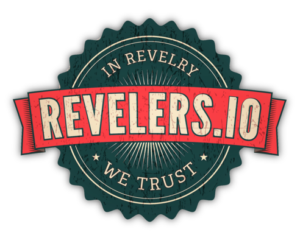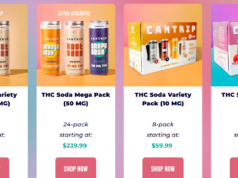Crafting a strong and accurate business plan is crucial for every business. Basically, any business plan is a guide you’ll be able to use at any point – when starting your business, when developing it, when talking with investors, and so on.
Of course, in order to reach your goals successfully, you need to make your plain as detailed and accurate as possible, but it’s not just that that matters. The whole business plan development process is as challenging as coming up with strong persuasive essay topics, but there are plenty of online guides and examples to lead you through the whole process.
However, not any guide will do. While there are standard business plan templates, you cannot simply pick any of them. You have to remember that all businesses are different and what works well enough for one might not be as effective for another. That’s why when crafting a business plan you need to look for guides and examples related to your niche.
So if you need to write a business plan for the beverage company, here’s what you need to focus on.
It starts with an executive summary
An executive summary is basically a short introduction of the whole business concept you have in mind. It should be pretty short (preferably no longer than a page) and focus on beverages you offer, your key goals, the structure of your company, and your management team.
While all business plans start with an executive summary, it’s actually much better to write it last. This way it’ll be easier for you to include all the points without missing something important.
Include the overviews
Both business and industries overviews are also crucial to include. Industry one demonstrates your knowledge of the niche and also describes the situation on the market to your potential investors. When writing it, describe the opportunities you have under the following circumstances – do you think there’s an opportunity in the first place? Why do you want to target this market specifically?
A business overview is your company’s brief history. It describes not only its experience along with the team working for your company but also the mission and the vision of your business. While this part might seem unnecessary for those who write business plans just for themselves, remember that you might need to show this plan to the investors later. That’s why it’s good to describe what your company looks like.
Of course, you cannot do this without a proper research – and the more thorough it is, the better it would be for you. Beverage market could be very competitive sometimes, that’s why the planning is crucial. Try meeting with the owners or administrators of beverage companies that are familiar to you, asking them about the situation on the market. Look online for current beverage industry news to get a better understanding of how the market functions now. Learn about the industry aspects as well.
Have a clear marketing strategy
 We’ve already mentioned that a business plan is basically a guide you can use to get where you want and reach your goals. A marketing strategy is a key to that – and it’s also the most important part of your business plan.
We’ve already mentioned that a business plan is basically a guide you can use to get where you want and reach your goals. A marketing strategy is a key to that – and it’s also the most important part of your business plan.
Think about the product you’re going to offer. You probably have a concept of a beverage that you’ll be promoting, but now it’s time to develop the idea even further. Do some additional research to find out which beverages are trending on the market now. Think of which ingredients you should use. Find out the forecasts regarding the category of beverages you plan on offering.
Think about your target audience as well. Would you beverages look like a thing that is simply nice to try to this audience? Or would the audience consider them something really enjoyable and worthy of buying on a regular basis? Always aim for the second option.
It’s time to set your goals now and to do this as clearly as you can at the moment. Try to identify your target audience, define what makes your product unique, describe your goals and the results you expect to get. And then move to the next stage of the process – coming up with an operational plan for the nearest future.
Describe an operational plan
An operational plan shows how your business is operated on a daily basis. This means it should focus on the team, mentioning how many human resources you have, on your other resources (facilities, finances, supplies, etc.), and on a production plan.
When it comes to human resources, you need to describe how many of team members you have or need to have, what are they responsible for, what are their main skills, etc. Then move on to the resources, describing where your administrative center is located, two are your suppliers, where you’re going to store your products, etc.
After that, move on to the production plan, telling how exactly you’re going to create beverages – manufacture them on outsourcing, create your own facilities for that, etc. Write about whether you’re going to use raw materials for beverage creation or you’ll have some dependable suppliers to provide you with them. Also, describe the technologies that will be used in the process. Most likely your beverages will be supplied in bottles, so maybe you should consider starting a personal bottling plant in the future or outsourcing bottle making.
Another important thing you need to focus on is licensing. When it comes to beverage industries, health permits are crucial there, so you need to write down a list of licenses you will need and obtain them accordingly.
Don’t forget about finances
Proper financial planning is crucial for any business who wants to succeed. The investors pay special attention to this section as well.
That’s why in financial planning section you need to describe your budget for at least nearest three years, focusing on your income, cash flow (both monthly and yearly), etc. If this seems too challenging, you might want to hire a professional to do it for you. However, if you are on a budget, you’ll still be able to figure out how to do this on your own, gaining so much experience in the process.
Always set deadlines
Sure, you might have plenty of goals – but unless you have a deadline for all of them, you might not be able to reach them. The deadlines are important for many reasons: not only they motivate you to finish things faster but also allow you to track your progress and evaluate how effective your business is.
That’s why it’s so important to set deadlines and milestones for your projects, estimate when you plan on reaching your goals, and so on.
While writing a business plan is a challenging process, you’re definitely going to handle it – especially after looking at related business plan samples. However, don’t forget that no matter how good your business plan is, it shouldn’t remain static all the time. You need to review it from time to time, making edits if necessary.





